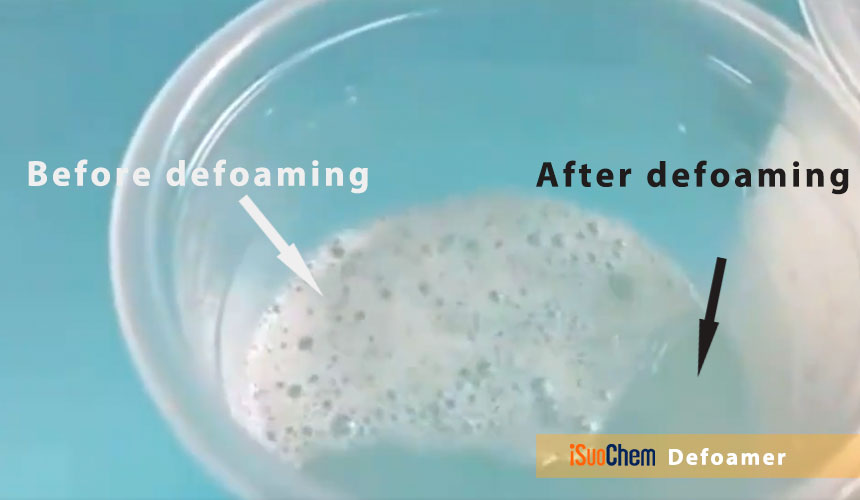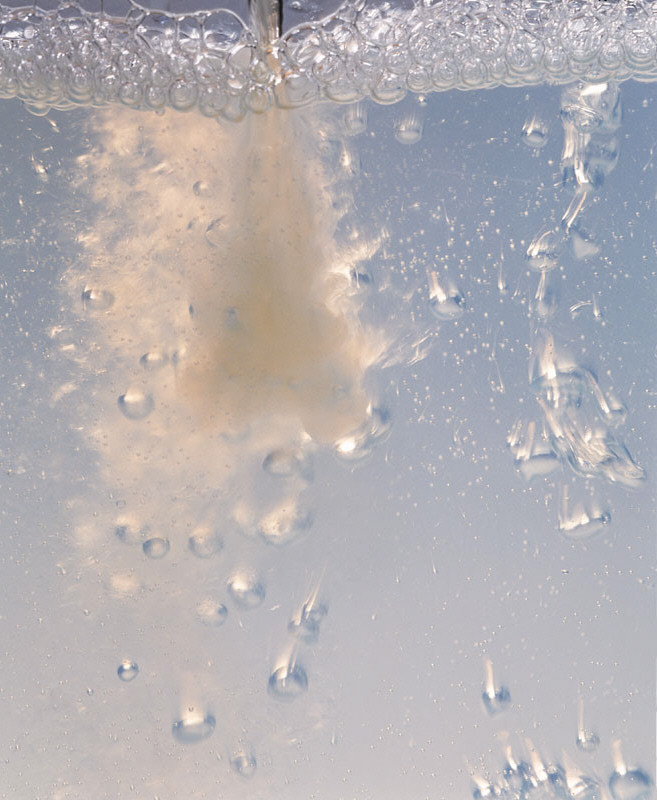Defoamers and Their Impact on Reducing Foam in Liquid Systems
Defoamers and Their Impact on Reducing Foam in Liquid Systems
Blog Article
The Function of Defoamers in Enhancing Item Quality and Efficiency
In numerous manufacturing procedures, the presence of foam can dramatically impede product top quality and operational efficiency. Defoamers offer as important ingredients that minimize this issue, guaranteeing smoother production workflows while boosting the visual and useful qualities of the end products (defoamers). Their application spans a plethora of markets, from food and beverage to drugs, where consistency and reliability are critical. The option of the suitable defoamer can be essential to achieving optimum outcomes, raising essential concerns about formula compatibility and efficiency metrics that warrant additional expedition.
Comprehending Defoamers
Understanding the duty of defoamers is necessary for maintaining item top quality across various industries. Defoamers are chemical ingredients created to decrease and protect against the development of foam in liquid systems, which can adversely affect procedures such as blending, filling up, and surface area stress. Foaming can bring about inefficiencies, item defects, and jeopardized aesthetic allure, making defoamers an important component in making operations.
In industrial applications, defoamers aid to enhance product uniformity and security. The reliable usage of defoamers not only ensures smoother production procedures however additionally contributes to exceptional item efficiency.
Moreover, the option and formula of a defoamer have to straighten with certain application needs, such as compatibility with other ingredients, efficiency under differing temperature level and pH problems, and prospective regulative restraints. Ultimately, comprehending defoamers' functions and their significance in numerous solutions is vital for maximizing manufacturing and ensuring the finest quality end products.
Kinds Of Defoamers
Defoamers can be classified into a number of kinds based upon their make-up and system of action. The key kinds consist of silicone-based, non-silicone natural, and inorganic defoamers.
Silicone-based defoamers are amongst the most effective, largely due to their capability to spread out promptly on the liquid surface area and interfere with foam formation. Their one-of-a-kind chemical framework permits for exceptional stability, making them appropriate for high-temperature applications and settings with differing pH levels.
Non-silicone natural defoamers, typically composed of fatty acids or natural oils, are valued for their biodegradability and lower poisoning. These are usually used in food and drink applications where safety and ecological impact are critical.
Not natural defoamers, that include substances like talc or calcium carbonate, act by raising the thickness of the fluid, thereby minimizing foam security. They are usually utilized in industrial processes where compatibility with other products is not a concern.
Each kind of defoamer has distinct advantages and restrictions, enabling for customized solutions depending upon the specific frothing problems encountered in various applications. Understanding these distinctions is crucial for optimizing performance and accomplishing desired product high quality.
Applications Throughout Industries
Numerous sectors utilize defoamers to boost product high quality and operational performance. In the food and drink field, defoamers are critical in procedures such as brewing and dairy products manufacturing to avoid foam development, which can result in ineffectiveness and item incongruity. By managing foam, producers can ensure much better yield and a more consistent item.
In the pharmaceutical market, defoamers play an important function in the formula of liquid drugs, where excessive foam can hinder blending and precise dosing. Their use helps maintain the honesty of the solutions and promotes smoother production processes.
The paint and coverings industry also depends on defoamers to boost the efficiency of products throughout application. By reducing foam, these ingredients guarantee a smoother surface and improve the aesthetic high qualities of the end product.

Advantages of Utilizing Defoamers
While the application of defoamers varies across markets, their benefits consistently enhance product high quality and procedure efficiency. One considerable benefit is the decrease of foam development during producing processes, which can otherwise bring about production hold-ups and inconsistencies in product quality. By minimizing foam, defoamers enable a smoother circulation of products, facilitating more efficient operations and reducing the likelihood of devices breakdowns.
Furthermore, making use of defoamers can boost the appearance and texture of end products. In fields such as coverings, paints, and food processing, extreme foam can endanger the aesthetic appearances and overall quality, while the proper defoamer application guarantees an uniform finish and preferable features. Defoamers can add to set you back savings by lowering waste during manufacturing and maximizing the usage of raw products.

Picking the Right Defoamer
Selecting the appropriate defoamer is important for maximizing manufacturing websites processes and making certain product high quality. The option of defoamer influences not just the performance of foam control yet also the general efficiency qualities of the last item. Factors to consider include the type of application, the chemistry of the formula, and the environmental conditions under which the item will be utilized.
Various markets may require certain defoamer kinds, such as silicone-based, natural, or polymeric defoamers. Comprehending the compatibility of the defoamer with the primary active ingredients is important to stay clear of unfavorable responses that can endanger item honesty. Additionally, the defoamer's efficiency in numerous temperatures and pH levels have to be evaluated to ensure regular performance.
Examining the defoamer in small-scale applications can give useful understandings into its performance and viability. Factor to consider of regulative compliance, particularly in food, pharmaceuticals, and cosmetics, is critical in selecting a defoamer. Ultimately, an extensive assessment of these aspects will result in the option of a defoamer that not just regulates foam successfully however likewise improves the top quality and efficiency of the end product.
Final Thought

Finally, defoamers are important additives that dramatically enhance product quality and efficiency throughout different sectors. By effectively lowering foam development, these agents not just boost operational effectiveness but likewise contribute to the visual and functional stability of items. The critical option and application of defoamers bring about cost savings, optimized resource usage, and increased consumer fulfillment. In general, the relevance of defoamers in commercial procedures can not be overstated, as they play a vital role in attaining high-quality and consistent end results.
Foaming can lead to inefficiencies, product defects, and compromised visual appeal, making defoamers an essential component in manufacturing operations.

Report this page